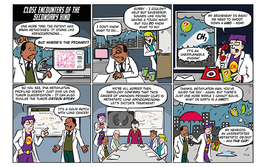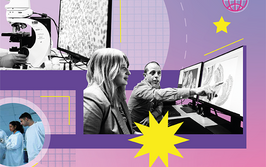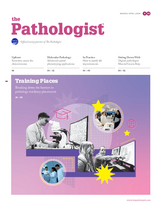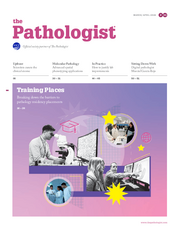Getting it Right First Time
Can pathologists and clinicians work together more closely to reduce the number of incorrect medical assessments?
Eon’t worry – we’ll get you back to yourself in no time...” or so I was assured by the physician after attending her clinic with a minor ailment. Several prescribed medications and as many days later, worsening symptoms encouraged me to attend a follow-up visit for a second opinion. The outcome? A different diagnosis, new medications, and an insistence that I stop taking the previously prescribed drugs. My recent experience was a only a minor case of diagnostic error, but it did get me thinking of its impact: the financial cost of two consultations and an array of incorrectly prescribed medications; the potential unnecessary side effects; my accidental contribution to the growing problem of antibiotic resistance; lost productivity...
I know that everyone in the healthcare system works to the best of their ability using the information available – and often with limited resources. But I did wonder how pathologists might help to reduce the incidence of errors that take place before a sample even gets to the lab (if, indeed, it makes it there at all). Can pathologists influence the diagnostic process at the primary care stage? And, if so, how? I would love to hear your thoughts ([email protected]).
Last year, we published a two-part cover feature on diagnostic error (1)(2). Our experts spoke candidly about the extent of the problem in the laboratory. They deliberated over the right and wrong way to approach disclosure, discussed the legal consequences of admitting a mistake, and reflected on their responsibility to communicate directly with patients and other medical professionals. We also presented examples of successful programs designed to minimize the occurrence of error and to improve disclosure protocols. One contributor delved into the psychology of the decision-making process; according to her research, once we believe that we have identified the right cause, our minds are unlikely to be open to other possibilities.
As pathologists and lab medicine specialists, the value and expertise that you bring to the diagnostic and treatment decision-making process is immeasurable. Though many hospitals and institutes have their own systems in place to encourage regular communication between clinician and pathologist, I’m sure you’ll agree that there is room for improvement. There is no one size fits all solution and no guidelines to support effective cross-discipline communication or error disclosure, so I would also be very interested in any examples of communication programs that have worked for you. Please email [email protected]. I’m looking forward to sharing your experiences.

Fedra Pavlou
Editor
- N Miller, “We Need to Talk”, the Pathologist, 20, 18–29 (2016).
- N Miller, “It’s Our Turn to Talk”, the Pathologist, 21, 18–33 (2016). March 10, 2017.

After graduating with a pharmacology degree, I began my career in scientific publishing and communications. Now with more than 16 years of experience in this field, my career has seen me heading up editorial and writing teams at Datamonitor, Advanstar and KnowledgePoint360 group. My past experiences have taught me something very important – that you have to enjoy working with, and have respect for your colleagues. It’s this that drew me to Texere where I now work with old colleagues and new. Though we are a hugely diverse team, we share several things in common – a real desire to work hard to succeed, to be the best at what we do, never to settle for second best, and to have fun while we do it. I am now honored to serve as Editor of The Pathologist and Editorial Director of Texere Publishing.




















